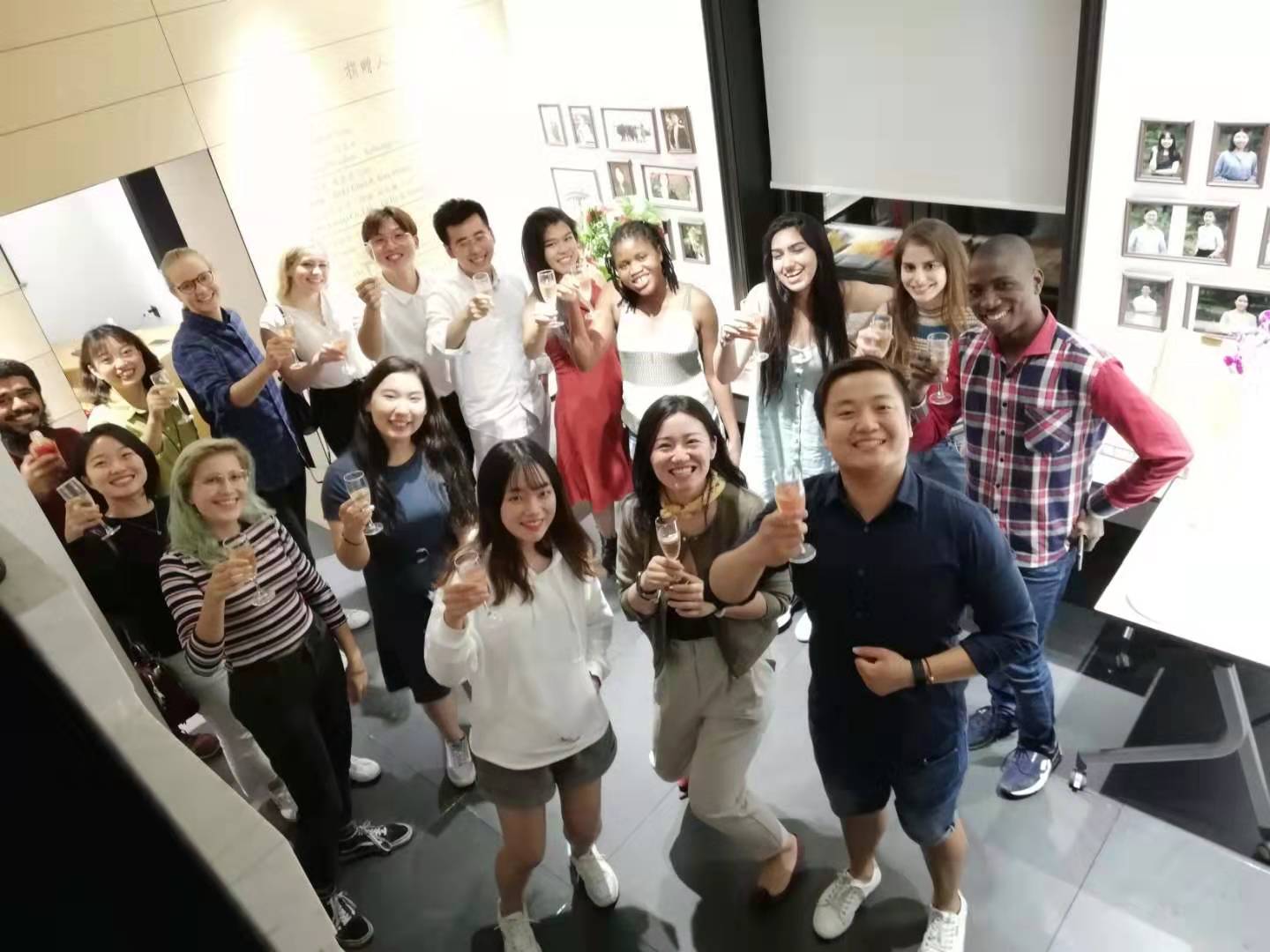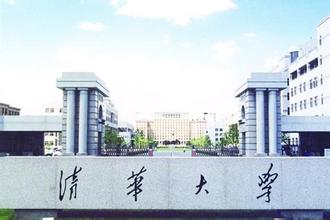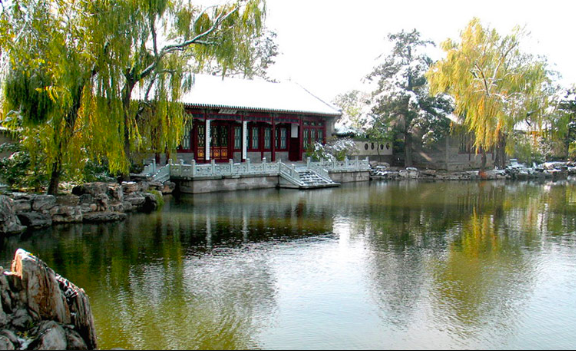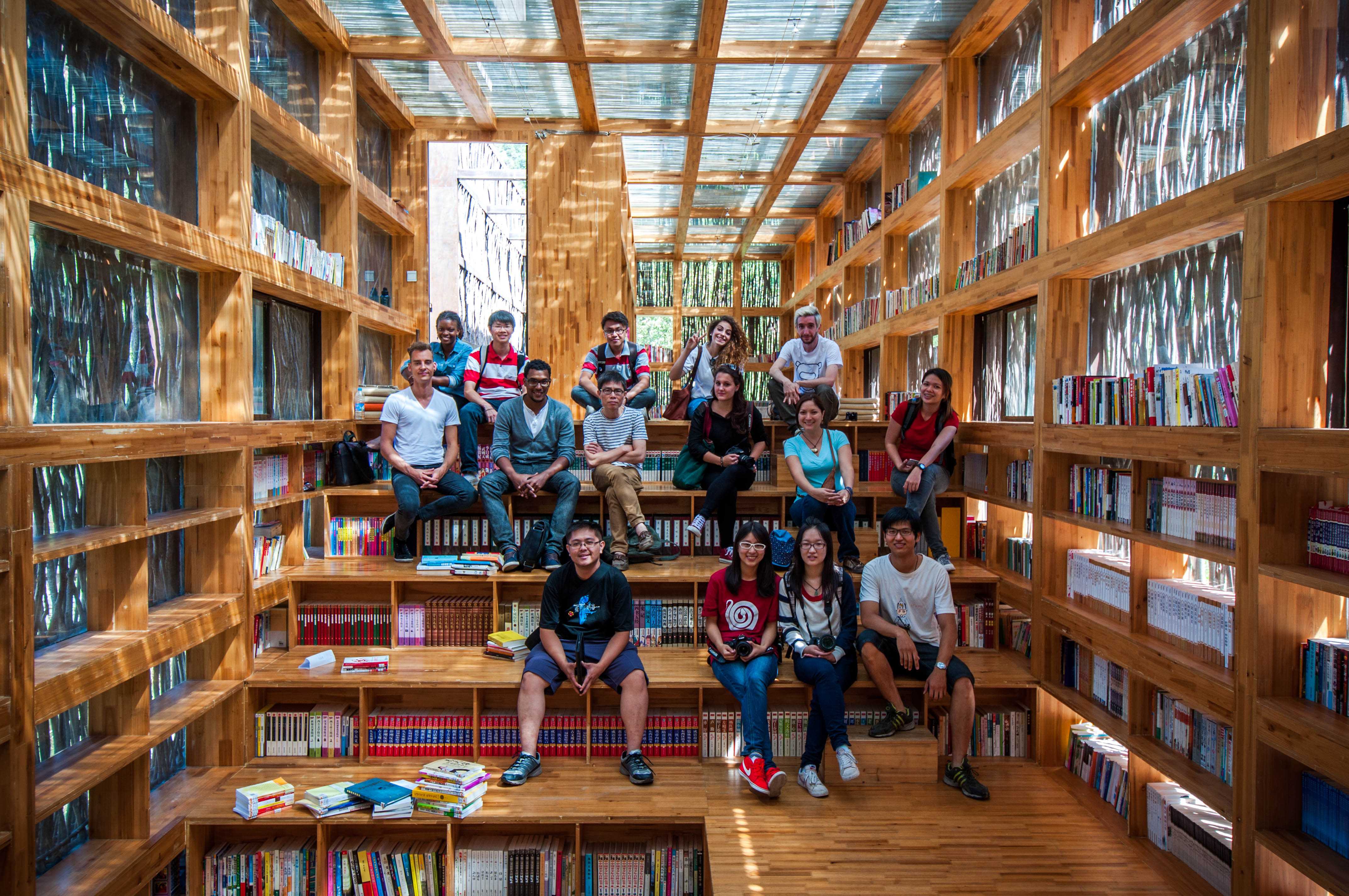Phil is born to Chinese parents, but he has lived in South Africa all his life. Seeing the potential that China brings to the global construction market, Phil decided to study Master in International Construction and Project Management (ICPM) at the prestigious Tsinghua University.
While studying ICPM, Phil is slowly reconnecting with his Chinese roots, discovering his Chinese ancestry and just enjoying the culture.
Find out how this visionary finds the ICPM program, his future goals and how he plans to use his learnings in China to give back to his home country.

Why did you choose to study in China?
I have Chinese ancestry. Both my parents are Chinese or Chinese-born. I wanted to reconnect with my culture and heritage, and the best way was to study in China.
At the same time, China is one of the superpowers in the world and it has lots of potentials, that’s why I chose to come to China. Not only will I gain an abundance of knowledge and contacts, but the views from an entirely different country as well!
Can you tell us about your educational background?
I graduated from high school and obtained my bachelor’s degree in South Africa. I have a Bachelor’s in Architectural Studies and as of now, I am studying Master in International Construction and Project Management (ICPM) at Tsinghua University. I’m in my second year, and hopefully, I get to finish before mid of next year.

Why did you choose the ICPM at Tsinghua University?
Tsinghua University is well known among Chinese people and westerners. It was also appealing because it was related to my field, specifically in the field of civil engineering which is related to architecture.
How is the experience so far?
There are a lot of Chinese professors and their knowledge and experience are abundant. I’ve never been the most studious person, but the professors in ICPM at Tsinghua University always expose you to new things and encourage you to interact with different elements of the degree besides just being academically focused.
An example of such, I have made a lot of connections at Tsinghua University that will hopefully help me in the future.
What is it like to study at Tsinghua University?
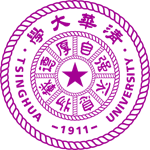 Amazing! This might be a little biased but it depends on what/where you are looking at. From my perspective, I see it as a great opportunity, not only to meet great people from all over the world but the amount of knowledge you are exposed to is incredible.
Amazing! This might be a little biased but it depends on what/where you are looking at. From my perspective, I see it as a great opportunity, not only to meet great people from all over the world but the amount of knowledge you are exposed to is incredible.
Another notable thing is that there are around 280 student associations at Tsinghua. There’s always something to do, something up everyone’s alley. If you are the cultural, sporty or musical type, whatever the case there’s something for you.
For me, I am currently getting to know a trending project; the BRI. I’ve never been exposed to it before back in my country because it was not spoken about. In China, it’s everywhere so that’s quite nice. I would say that the environment for studying, for learning and for gaining knowledge is incredible.
The environment is also stunning. The campus is beautiful, it’s huge. It will probably take you a solid month to explore every nook and cranny of the campus.
What’s the accommodation like? Are you staying on campus?
No, I don’t stay on campus but I do have friends who share their on-campus experiences. From what I’ve seen and heard, it is a typical student life; there are specific showering times and there’s a set time for breakfast, lunch, and dinner.
Most of the people I’ve spoken to who stay on campus say that campus life can sometimes be too much for them, but to address this problem, the university provides a lot of different facilities. There are many coffee shops, libraries, reading rooms and studying spaces for students, Tsinghua University is very accommodating.

Did you stay off-campus out of choice?
Yes, as a South African I have this mindset where private spaces are greatly appreciated. Even when I was in South Africa, I never lived on campus as I had the privilege to stay in a residential area off-campus.
What can you say about the construction industry in China?
The construction industry is massive. It depends on what you want, there’s something of interest for everyone. However, competition is extremely tough.
For me, since I can speak both Chinese and English and can translate the basics of the two with relative ease, it puts me at a slight advantage. Some people can do it much better than I can no doubt, but translation work is not my main focus right now in China, as I am trying to better myself as a future leader.
In general, the size of the construction industry in China is numbing. The scale of projects that they do, and how fast they can achieve them is amazing. I’m sure everybody has an idea of how China constructs something very quickly, like ludicrously fast. A high-rise building can be done in less than a year or so.
It always makes me question why China is doing so well compared to other countries in terms of construction. For anyone interested in construction, if you come to China you’ll have a different perspective on construction.
What do you think of China-Africa opportunities? Do you plan on staying in China?
Many fellow Africans are studying here; people from Kenya, Zimbabwe, some from Congo and South Africa. The relationship between Africa and China is very strong. Numerous scholarships are offered for African students if they can’t pay, which is the case for most students.
To pay for a degree outside of South Africa is unaffordable for average, South Africans. I’m planning to take my skills back, but I want to stay here for a couple of years. Hopefully, when I return I will be one of the leading developers in my home country. I want to be at the forefront of change.
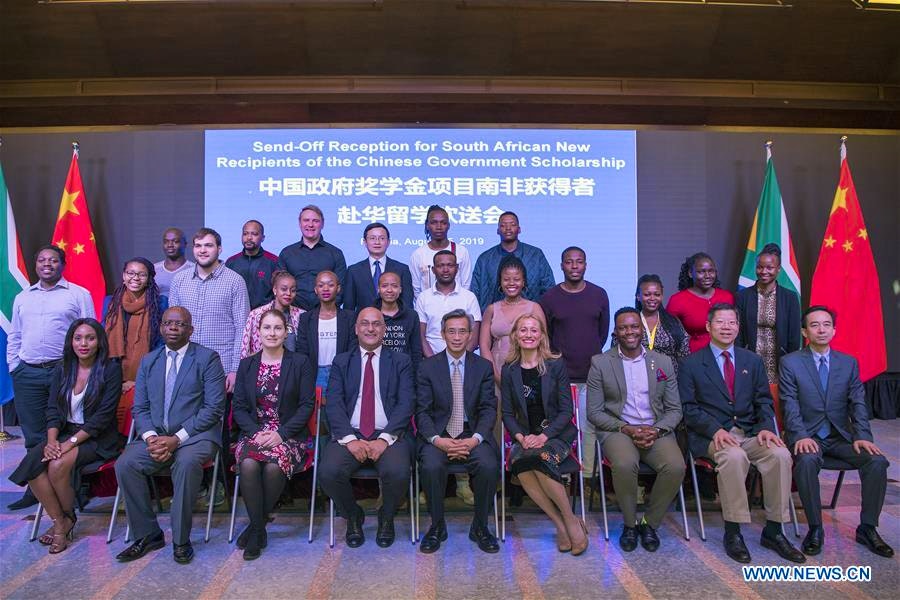
How do you think this degree will help you in South Africa?
ICPM at Tsinghua University not only helped me understand how logistics work in China, but there are a lot of models that you can take back home. For example, we studied a lot about management and the process of it. In my country, there seems to be a lack of management, it is chaotic. Now armed with the knowledge on how to efficiently manage a project, I believe that it will be of great help back home.
Besides academic knowledge, I also learned a lot of soft people skills in China. Tsinghua is a very international university so you get exposed to different cultures. You become more understanding when approaching a different culture. You become more open and patient. Cultural competence can’t be learned, not as intensely, in my own country.
While understanding other cultures it allows me to take a step back and realize the flaws and the strengths of my own country.
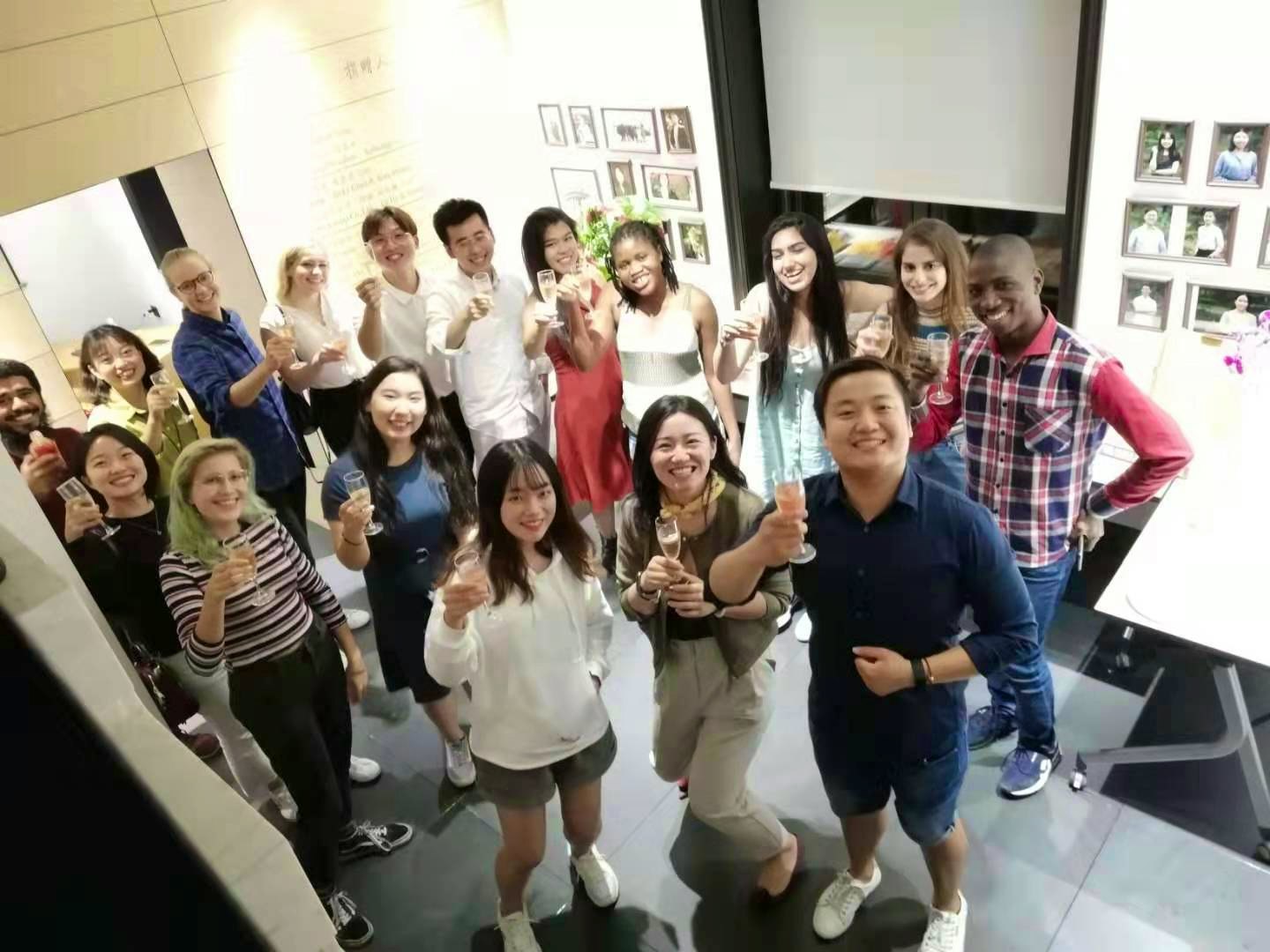
Have you traveled much in China?
Yes, but not recently. When I was younger, my parents would always go somewhere in China once a year. I’ve forgotten a lot of places that I’ve visited. Right now, I’m not that motivated to travel for several reasons. Mainly because there are just too many people. I feel like I can’t enjoy a place because it’s too crowded.
What do you think about the relationship between Africa and China?
China is one of the main supporters of Africa, and with the BRI, the bond is only going to get stronger. China is like the grandpa and Africa is the little child.
China has taken Africa under its wings and I see it becoming very prosperous one day. The only concern is that back home, people say that China is going to take all the jobs, but I think more jobs have been created than taken away.
How do you think this will contribute to the construction market?
I am aware of some projects in the middle and the northern parts of Africa bring in companies that teach and train unskilled laborers. It’s a norm right now, many Chinese construction projects incorporate local communities and they discuss what projects they want to create or build. They always try to involve the community. I see it as a positive thing.
What type of student would be suitable for the ICPM program?
Anyone is suitable. The youngest in my degree is 21 years old. Every year, ICPM has a different group of students; my year is ICPM 7, there were only 9 of us and each of us came from different countries.
We have different backgrounds, some of us are working, some of us have started a family and others are like me, just students. It’s a good platform I think, for example, if you don’t have the money to fund your studies, the scholarship programs in Tsinghua are pretty good and can help you monetarily.
Whether you’re new, just studying or working, ICPM is very good. It’s for everyone.
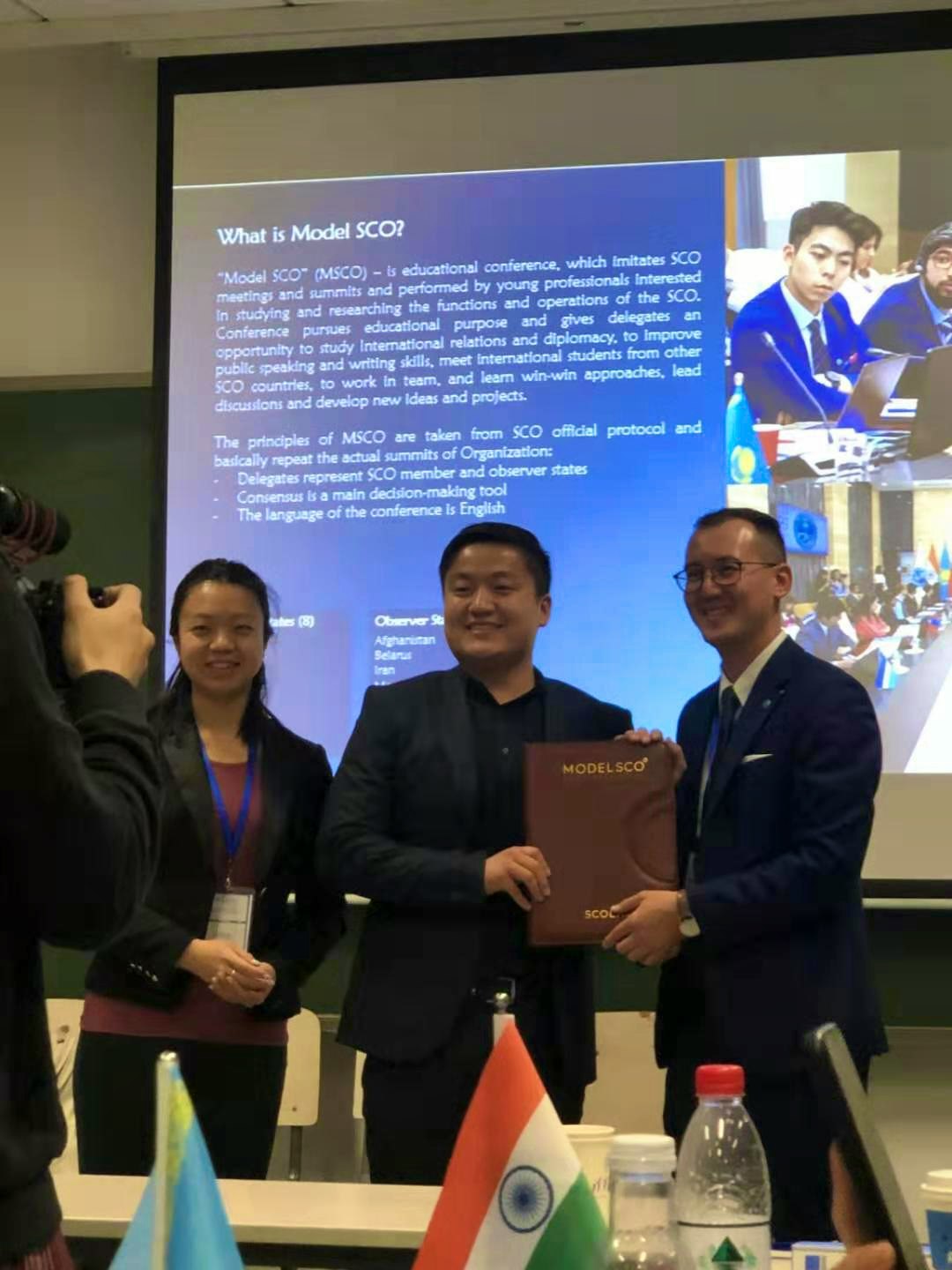
Do you think ICPM at Tsinghua University is better suited for civil engineering or architecture students?
No, it’s very broad. The full title is International Construction Project Management. The keywords to focus on are “project management” or “construction project management”.
The most essential focus of the program is to build your project management skills. For example, one of my classmates comes from a financial background and I come from an architectural background.
What can you say about the professors and their backgrounds?
Our professors are well-known throughout the Civil Engineering department. Tsinghua University is a civil engineering-focused institution. Many of the professors have published papers and have been/are still part of construction projects and companies. I don’t know the specifics but the professors at Tsinghua are incredibly experienced, and this shows in their lectures.
The director of ICPM teaches construction law. The amount of detail and how in-depth he goes when explaining is based on his experience which is incredibly helpful. It’s wonderful to see how to implement and the relevance of the things taught.
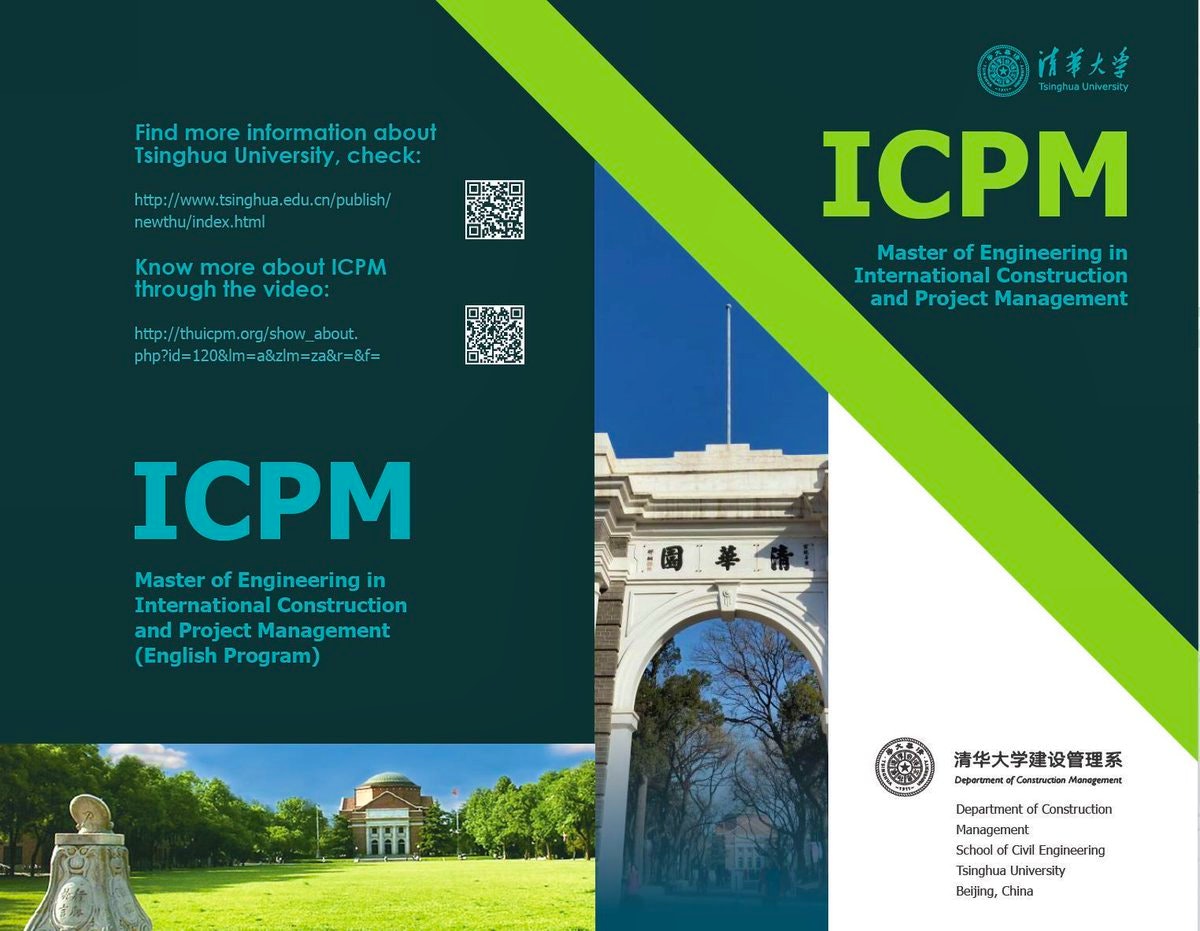
What tips can you share about project management?
For project management, be open-minded and have the desire to learn. Be motivated to ask many questions and prepare yourself to be stuck in with a lot of associations.
If you’re an international student pursuing a bachelor’s or master’s degree, it’s not worth just getting a degree in Tsinghua. You have to build connections and gain all the knowledge that you can get. You should be willing to expose yourself to everything. If you get into associations, you might be given a project where you can apply and practice a lot of theories that you learned.
Anything else you want to share?
There are more than 4000 international students at Tsinghua University. Asians, Europeans, and Africans, you name it, it is wonderful. I met many different people from Africa when compared to when I was in South Africa. I rarely met Kenyans, Jordanians, and Zimbabwean back home. It’s weird because when you meet someone from your own country here, you appreciate it so much more.
Thank you, Phil, for your valuable insights about ICPM at Tsinghua University and your interesting experiences in China.
China Admissions wishes you the best of luck in your journey to rediscovering your Chinese roots and culture.
Inspired by Phil’s story?
Study ICPM at Tsinghua University like Phil and be exposed to a new way of thinking. Gain an in-depth understanding of how Chinese organizations operate, manage, and deliver projects in this fast-changing world. Learn more about ICPM’s Programme Stages, Milestones, and Courses here.
Applying to the ICPM program is made easy with China Admissions. Let our trained admissions specialists provide you with professional assistance and advice.
- Top 10 Ranked Chinese Universities - January 10, 2025
- China Scholarships – The 2025 Guide for International Students - December 30, 2024
- 9 Fascinating Things About Christmas In China - December 24, 2024
